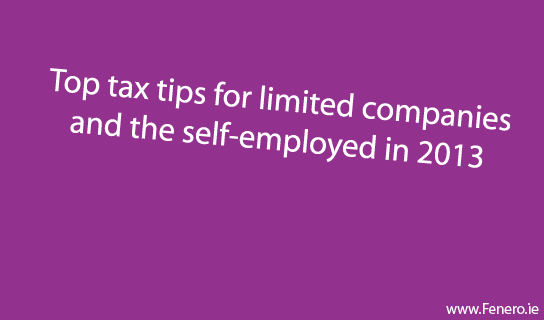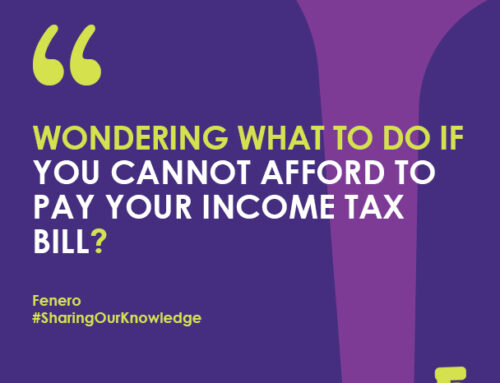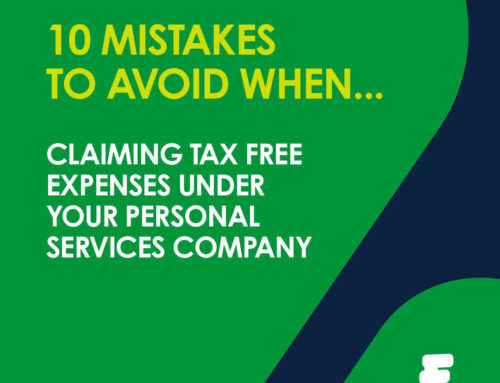€250 small benefits relief
Every employer is entitled to pay each employee a non-cash tax free gift of up to €250 per annum. These gifts generally take the form of the provision of gift vouchers and have become a particularly popular method of paying out Christmas bonuses to staff, although they can of course be paid at any time during the year.
The benefit to the employee is that they do not have to pay any income taxes on this and the benefit to the employer is that they do not have to pay Employers PRSI. If you have the choice to pay out €250 as a voucher rather than as a salary bonus, both the employer and the employees will save tax.
The important criteria to be aware of is that it must be a once-off annual payment. For example you cannot give one voucher for €100 and later give a second voucher for €150. The employer must also purchase the vouchers directly and then give them to the employees – an employee cannot purchase a voucher and then ask to be remunerated by their employer.
This also applies to one-person limited companies, so if you have your own limited company, don’t forget to arrange your tax free €250 gift voucher.
Pensions
If you are self-employed and operating through a limited company, it is significantly more tax efficient to contribute to a pension via an Executive Pension Plan rather than a Personal Pension Plan. This has always been the case but is even more so in recent years after the introduction of significantly reduced tax relief on personal pension contributions. If you currently contribute to a Personal Pension Plan it may be very worthwhile to look into replacing this with an Executive Pension Plan.
Maximise tax free travel and subsistence payments
In order to minimise income tax and PRSI costs, it is important to ensure that you are first maximising all your allowable tax free travel and subsistence payments, before taxable salary payments are then made. Many busy company directors often neglect to claim their entitlements in this regard or forget to include these as part of a remuneration package for relevant employees.
If you away from your “normal place of work” for greater than 5 hours a day, you are entitled to pay yourself a tax free amount of up to €13.71 for each day that this applies. If you are away for greater than 10 hours a day, a tax free amount of up to €33.61 is allowable. More information about this can be found in Revenue’s Leaflet IT54 – Employee Subsistence Expenses available at www.revenue.ie
In addition, for every business journey that you make in your own private vehicle, you are entitled to pay yourself a tax free amount based on a rate (up to 59.07 cent) per km travelled. Don’t forget that business journeys include trips to the bank, to your accountant, to meet potential customers and suppliers etc. All of the small journeys add up so it is worthwhile documenting them and taking your tax free mileage payment. More information about this can be found in Revenue’s Leaflet IT51 – Employee Motoring Expenses available at www.revenue.ie
Home office expenses
Many business owners will often spend time working from home, even when they also have a shop premises or office unit. Where this is the case, tax liabilities can be reduced by claiming home office expenses, such as home broadband, telephone, gas and electricity. The amounts which can be claimed will vary depending on how much time is spent working from home and the nature of the work performed there. However it is worth reviewing this area and claiming for all amounts that you are entitled to.
Employer paid Travel Passes
The provision of travel passes for public transport to employees is exempt from BIK. If you have employees who use public transport to get to work, it is in both their and your interest to arrange for the provision of an employer paid travel pass. The most important rule is that the employer must pay for the cost of the travel pass directly i.e. the employee cannot pay for it and later be reimbursed by the employer. Most employers agree a salary sacrifice arrangement with employees in relation to this i.e. the employee agrees to reduce their gross salary by the cost of the travel pass. Even under a salary sacrifice arrangement, the employee is better off as they are effectively paying for their work travel costs out of their before-tax income rather than after-tax income, thus saving income tax on the cost on the travel pass. Employers will save on Employers PRSI costs. More information can be found at www.taxsaver.ie
Pension Term Assurance vs. Life Assurance
Life assurance premiums are not tax deductible. However, if you replace your life assurance policy with what is known as a Pension Term Assurance policy you will be entitled to claim tax relief on the premiums under the same rules which apply to personal pension contributions. A Pension Term Assurance policy is a life assurance policy with two main restrictions i.e. the policy cannot be assigned to a mortgage or other loan and the policy cannot be taken out on a joint life basis. This can therefore be a tax efficient method for the self-employed to pay for the cost of life assurance.
Remunerating your spouse
If you are married and your spouse is not working or is not maximising the use of their own personal tax credits and tax bands, it may be possible to employ and remunerate the spouse from your company in order to maximise use of the tax credits and 20% tax rate band. Not all tax credits and bands are transferable between spouses so the best way to make use of them is to remunerate both spouses from the business. This can result in significant income tax savings for the married couple.
It is important that such a salary is reasonable and reflective of the work actually carried out by the spouse. This work could include a whole host of tasks that spouses often find themselves doing in support of their partner’s business, for example services as company director, general bookkeeping or administration services.
E-worker expenses
eWorking is regarded as method of working using IT. If you have employees who work remotely from home, even on a part time basis, they are entitled to a tax free payment of €3.20 per day that they are working from home to cover the cost of expenses such as additional heating and electricity costs. In addition the employer can provide computer and additional equipment and office furniture to the employee without operating BIK so long as the primary use of these will be for business purposes.
These provisions apply to eWorking employees only and not to employees who in the normal course of their employment bring work home with them in the evening etc.
Medical Check Ups
The provision of one medical check up per year can be paid by an employer on behalf on an employee without the employee incurring BIK. This is another tax efficient benefit which can be offered to employees.
PRSI Savings for Employers and Employees
The standard rate of Employers PRSI is 10.75%. However a reduced rate of 4.25% applies to employers earning €356 per week or less (€18,512 per annum). If you are planning to employ staff at around this salary level, you will save tax by keeping within this limit.
Your employee will also save tax if their salary is €352 per week or less (€18,304) as they will pay no Employees PRSI. When their earnings increase above €352 per week, they will pay 4% Employees PRSI.







